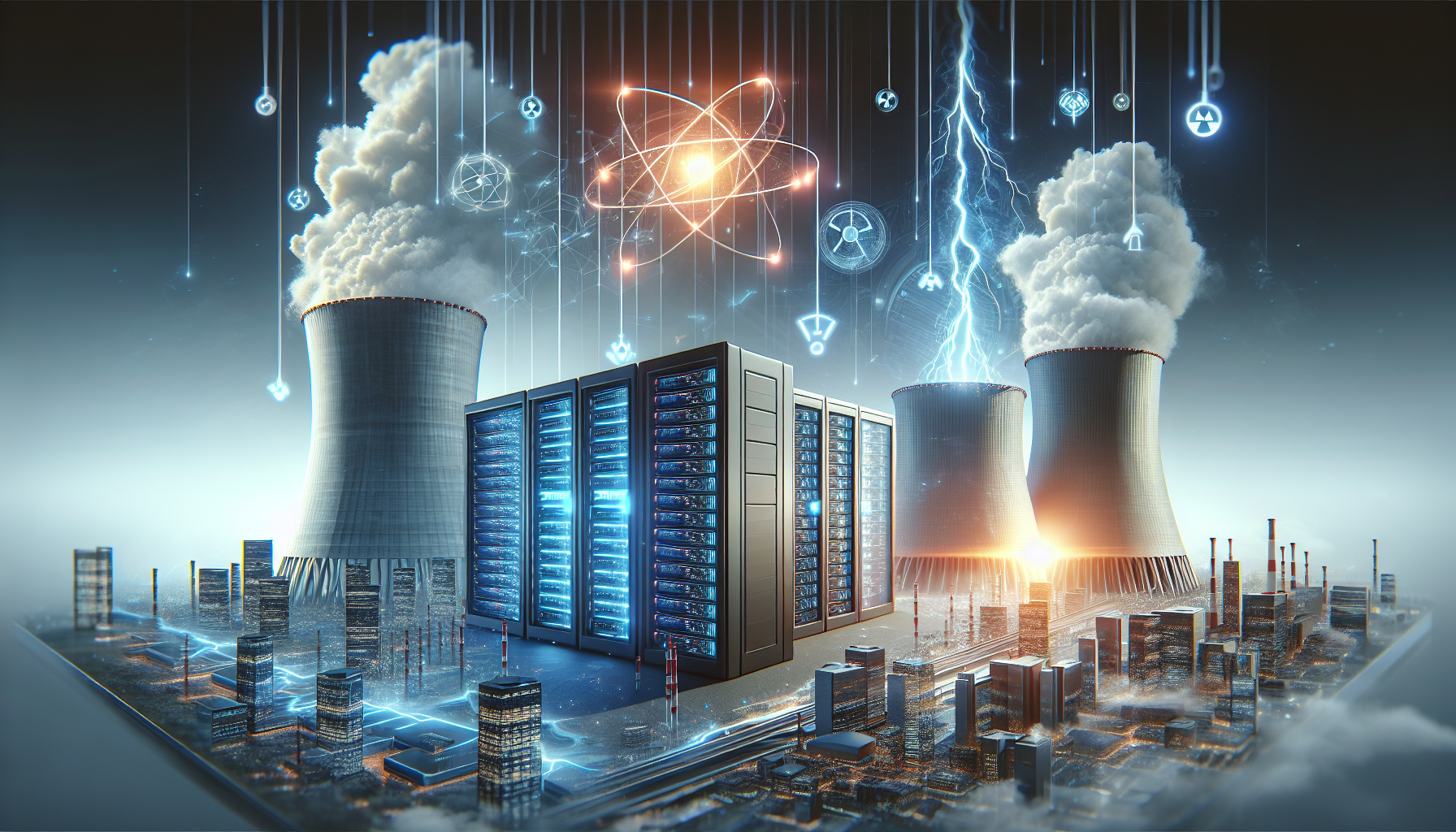AI Drives Big Tech & Nuclear Energy Partnerships for Power
Introduction
The rapid expansion of artificial intelligence (AI) is significantly increasing electricity demand from data centers, pushing Big Tech companies—such as Google, Microsoft, Amazon, and Meta—to seek robust, reliable, and sustainable energy sources. Nuclear energy partnerships are emerging as a key solution to these challenges, leading to a surge in collaboration between tech giants and nuclear energy providers.
Why Big Tech is Turning to Nuclear Power for AI
Nuclear energy offers several advantages that make it an attractive option for Big Tech companies:
Stability and Reliability
Nuclear energy offers a stable, continuous power supply, which is critical for AI operations that require uninterrupted, high-volume computing. Unlike intermittent renewables (solar, wind), nuclear reactors provide consistent output, supporting the always-on nature of AI-driven data centers[2].
Carbon-Free Power
As tech companies pursue aggressive climate goals, nuclear’s carbon-free profile is attractive. It enables them to scale AI operations without increasing greenhouse gas emissions[2].
Emerging Technology
Advances in nuclear technology, such as small modular reactors (SMRs), are making it more feasible and appealing for tech companies to directly partner with nuclear operators[2].
Examples of Partnerships and Industry Moves
Several partnerships and industry moves demonstrate the growing trend of Big Tech-nuclear energy collaborations:
- Microsoft and Constellation Energy: Microsoft partnered with Constellation to restart Three Mile Island Unit 1 as the Crane Clean Energy Center, specifically to power cloud and AI infrastructure[5].
- Industry-Wide Commitments: New nuclear partnerships with tech companies now represent nearly 30 gigawatts of committed capacity across the United States, reflecting a dramatic shift in Big Tech’s attitude toward nuclear energy[5].
- Government Support: Recent U.S. policy initiatives, including a 2025 executive order, aim to accelerate the deployment of advanced nuclear technologies to power AI computing infrastructure—especially for national security and defense-critical data centers[3].
The Role of AI in Nuclear Operations
AI is transforming the nuclear industry in several ways:
Operational Efficiency
AI is being used within nuclear plants to digitize and analyze vast operational data, optimize fuel cycles, and enhance safety through predictive maintenance. For example, at California's Diablo Canyon nuclear plant, AI boosts efficiency by streamlining document retrieval and regulatory compliance[1].
Regulatory Streamlining
AI tools are being developed to help regulators and operators quickly interpret and analyze complex nuclear documentation, potentially speeding up licensing and regulatory approvals[1].
Design and Performance
AI-driven simulations aid in designing advanced reactors, predicting performance, and adjusting output in real time to match fluctuating data center demands[1].
Strategic and National Security Implications
The partnership between Big Tech and nuclear energy has significant strategic and national security implications:
Critical Infrastructure
The U.S. government now classifies AI data centers and the nuclear reactors powering them as critical defense infrastructure, emphasizing the strategic importance of pairing AI with nuclear power[3].
Public-Private Partnerships
Federal action is removing barriers to private sector investment and encouraging collaboration between tech firms and nuclear operators[3].
Future Outlook
The trend of Big Tech-nuclear partnerships is expected to continue growing, driven by the need for reliable, carbon-free power and the potential for innovation in both sectors:
- Continued Growth: The partnership between Big Tech and nuclear energy is expected to grow as both sectors seek to meet surging energy needs, decarbonize operations, and maintain competitive advantages in AI development[2][5].
- Innovation Drive: These partnerships could spur innovation in both nuclear reactor design and AI-powered energy management, reinforcing national security and economic growth[1][3].
In summary, AI is both driving Big Tech to partner with nuclear energy providers for reliable, carbon-free power, and transforming the nuclear industry itself through operational innovation. This symbiotic relationship is reshaping the landscape of energy, technology, and national infrastructure[1][2][3][5].

